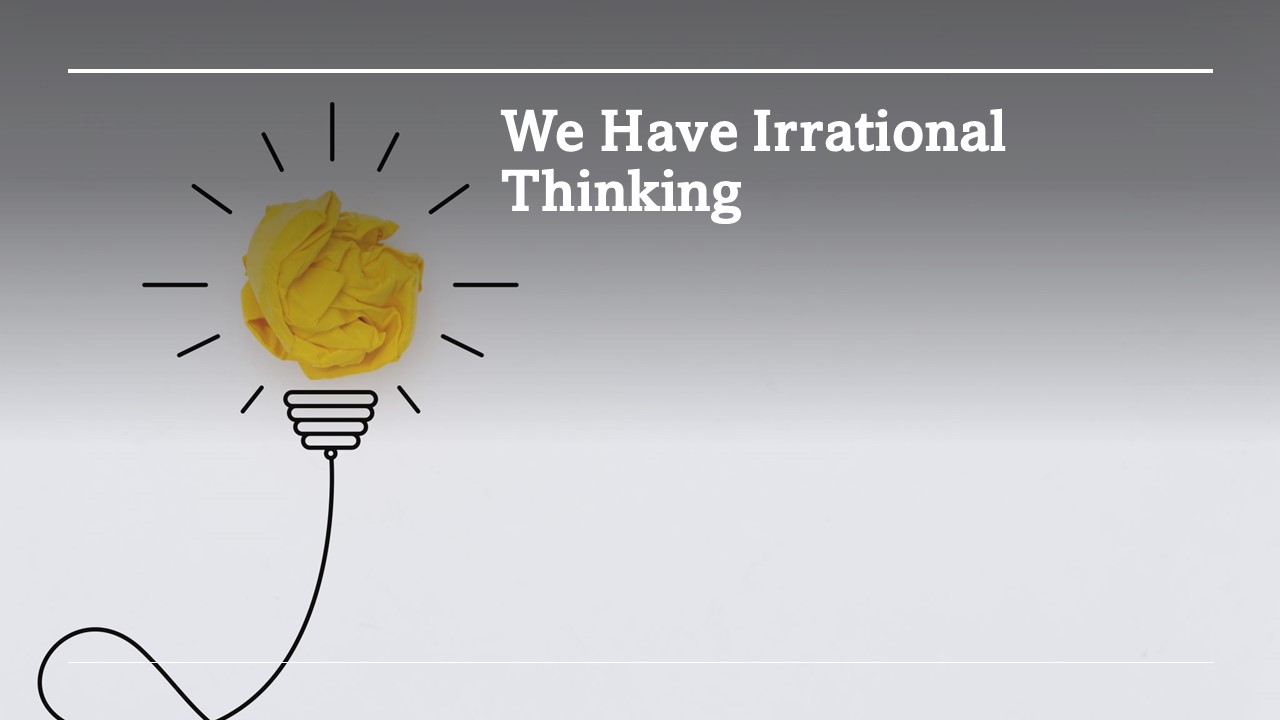For many people, romantic love appears to be an enchanting and mysterious emotional experience. It seems to be something irrational and inexplicable. People are curious about the secrets of love, yet not many scholars dare to rationally explain or scientifically understand why we fall in love. Do we follow our irrational thinking when we are in love?
Our Irrational Human Nature
Through centuries and across cultures, people have been inclined to think irrationally and intuitively about many things. Little knowledge and a lack of rational thinking were the main reasons why they thought this way.
Even though science has helped us understand the world and life more rationally, people still tend to think irrationally and rely on their gut feelings.
The Power of Irrational Thinking
This is why many people believe in some secret supernatural powers, in “conspiracy theories”, astrology, horoscopes, amulets, talismans, charms, interpretations of dreams, and many other mystical and magical things. No rational explanation can change their beliefs. These beliefs are persistent, despite anything.
Concerning this point, Howard Rankin asserts,
“Human beings are not logical; we are storytellers most interested in emotional comfort and safety. We can convince ourselves and justify anything. “
(Rankin, 2019).
As he claims,
“We are basically still Neanderthal, focused on survival and safety, and living in the present. Our brains haven’t adapted to a much more complex world.”
(Rankin, 2019).
Why Does Love Have Irrational Thinking?
In the same way, people believe in the irrational nature of romantic love and love attraction. They tend to trust their intuition rather than rational arguments. Many believe in fate and destiny in love, in the mythic “chemistry of love,” and in love at first sight. They believe that relationships work or do not work for them because they do not have the right “chemistry”. They tend to be intuitive and irrational in their relationships.
Many people believe that the mysteries of romantic love are beyond our rational knowledge, reason, and logic. Their ideas of love relationships concede some irrationality. People in traditional cultures who were not as well educated called this “the magic of love.” People who are better educated today call it “love’s chemistry.” Yet, love chemistry is still hard for us to understand from a scientific point of view. The term seems scholarly and respectable at first, although it is still irrational in its subject.
In their scholarly approach to love, modern educated and scientific conceptions of love strive to be rational, reasonable, and scientifically based. Nowadays, references to the stars aligning for a couple or fate sound pseudoscientific. The Amour’s, or Cupid’s, arrow in a heart is a beautiful symbol, but the myth seems too naïve to believe for modern people.
Nevertheless, many of them continue to believe in love irrationally. Why is that?
The Pitfalls of Irrational Thinking
First, people’s minds have a dichotomy of rational and irrational thinking. Many can think rationally about science and business but prefer to think irrationally about their internal experiences and relationships. They can be objective about some things but tend to be subjective about others. They can be objective researchers in science, though they can be subjective devotees in religion. For them, these different perspectives appear compatible.
The Pitfalls of Intuitive Thinking
Second, people have two modes of thinking: analytical and intuitive. People can be rational and analytical thinkers in their cognition of objective external objects in the world. However, it is difficult for them to be objective toward people—others and themselves. They tend to think irrationally and intuitively about people and relationships.
The Pitfalls of Exhaustive Thinking
Third, critical thinking can be exhausting. Hard and extensive thinking is tiresome. As some people know, too much thinking can cause a headache. Therefore, some people prefer to rely on simplistic shortcuts, such as intuitive, irrational thinking. It is easier and simpler, yet frequently biased. People are especially biased in their perception of others, themselves, and relationships.
The Pitfalls of Thrilling Emotions
Fourth, people tend to like everything that is mysterious, surprising, wonderful, beautiful, and fascinating. Love is such a “thing” that excites men and women, young and old. They like the thrill of such knowledge. It is natural that they like things, experiences, and events that are intriguing, captivating, and charming.
Idealistic Thinking Makes Men and Women Happy
Across various cultures, romantic tales of folklore, art, novels, poetry, and movies have described romantic love and romantic relationships in fascinating, exciting, wonderful, and intriguing ways. Often, their plots and depictions are beautiful and unbelievably idealistic. They are like fairy tales or scary stories, which are thrilling and inspiring for children. In the same way, adults love romantic stories just as kids love fairy tales. Sometimes, they believe their dreams will come true.
Irrational, idealistic thinking is fascinating and exciting. Why then succumb to rational, realistic thinking? It seems more interesting to think irrationally, especially about love and relationships.
